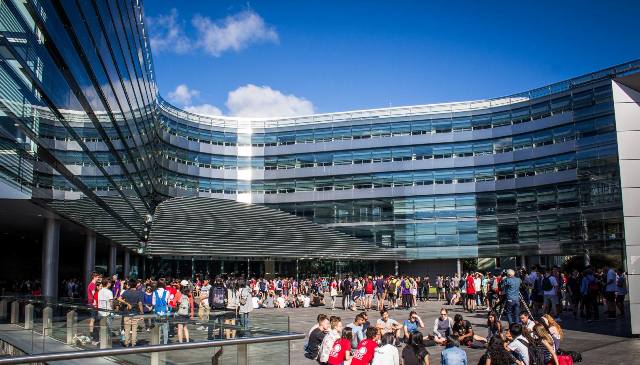 "For some analysts the Crown is a shapeshifting anomaly: not simply a conceptual placeholder for the state". [photo: University of Auckland on Facebook]
"For some analysts the Crown is a shapeshifting anomaly: not simply a conceptual placeholder for the state". [photo: University of Auckland on Facebook]
In this introduction to the latest special edition of the Round Table Journal, the authors explain how the symposium, the papers and the edition on this topic came about. These three excerpts are from the introduction.
At the centre of the constitutional orders of Canada, Australia, New Zealand and the United Kingdom stands a familiar icon and a usually unquestioned source of authority: the Crown. Yet that easy familiarity conceals a potent and paradoxical enigma. For some analysts the Crown is a shapeshifting anomaly: not simply a conceptual placeholder for the state, but also a constitutional fiction and mask for the extensive use of executive power, often used in ways that undermine proper democratic accountability.
In this special issue, researchers from several disciplines, including law, politics and anthropology, use the Crown as a lens to examine fundamental theoretical questions about sovereignty, statehood, constitutionalism and postcolonial reconciliation. Legal interest is now being complemented by studies of the Crown as a socio-political institution and cultural entity, and as the end of the reign of Queen Elizabeth II approaches, questions about constitutional monarchy and reform may acquire a new sense of urgency.
The papers and opinion pieces in this issue were first aired at a symposium in the University of Auckland in November 2017. That symposium brought together leading scholars and experts. Our aim was to promote an interdisciplinary exchange of ideas and perspectives on the legal, political and social dimensions of the Crown, its place in the constitutional order, its shifting symbolic forms and meanings, and what the study of these dimensions tells us about the changing nature of the state and government in postcolonial settler societies. Among the questions we sought to address were:
- What exactly is the ‘Crown’ and how does its definition and meaning vary in different contexts?
- What political work does the idea of the Crown do? How is it used as a strategic resource, and by whom?
- What remains of the Crown’s prerogative powers?
- To what extent is the Crown simply a metonym for the state?
- Is the Crown an obstacle to constitutional reform?
- What is the future of the Crown?
Our team of four ‘Crownies’ organised the 2017 symposium and then worked to produce the papers now being published in this issue of The Round Table: The Commonwealth Journal of International Affairs. We owe a huge debt of gratitude to the many interviewees in Australia, Canada, New Zealand and the United Kingdom who so generously contributed their time and thoughts and responded with patience and enthusiasm to our sometimes naïve questions. Meeting face-to-face, collecting stories and engaging in sometimes highly personal conversations with this diverse collection of actors provided major insights as well as valuable moments for reflection and analysis: it was also one of the most enjoyable aspects of the project that has laid the ground for a conversation that we hope will continue into the future. It was from that group of interviewees that we invited a number of key informants to present papers and comments to our symposium.
Finally, we should also acknowledge a debt of gratitude to the Crown itself: that mysterious, arcane, multi-faceted, shapeshifting and yet curiously contemporary object/entity/person or persons which has provided us with such a rich and interesting object of study. The historian Ernst Kantorovicz in his famous book on medieval political theology, The King’s Two Bodies, showed how commonwealths developed symbolic means for establishing their sovereignty. The Crown, the embodiment of state power that unites both the person and the office of the monarch, is a prime example of this. Yet the conceptual grounds on which sovereignty is established remain slippery. Writing at the turn of the twentieth century, F W Maitland – often regarded as the father of modern English legal history – wrote about the Crown as ‘the body natural by the conjunction of the body politic to it (which body politic contains the office, government and majesty royal) is magnified and by the said consolidation hath in it the body politic.’ What do readers of this journal now make of that statement – insight or mumbo-jumbo?
[Cris Shore and Sally Raudon are with the Department of Anthropology and David V. Williams is with the Faculty of Law, all at the University of Auckland.]
Related articles:
The Shapeshifting Crown by David V. Williams
Articles from the latest Journal edition and other Commonwealth News



